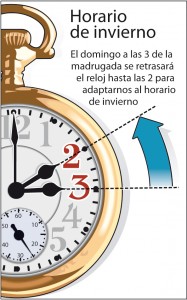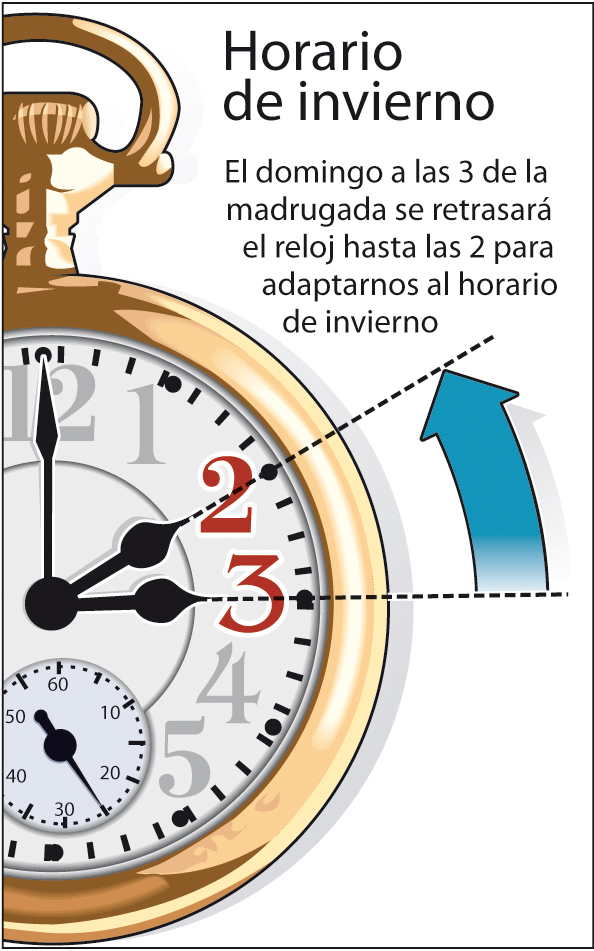The winter comes and the time change. On Sunday October 26th we will have backward the clocks one hour, so at 03:00 it will become 02:00 in the morning. So Saturday night to Sunday we will gain one hour.
5 CURIOSITIES ABOUT THE TIME CHANGE
 1. Since when is there the time change? Many ancient cultures lengthening daylight hours in summer. The modern summer time was first proposed by Benjamin Franklin and later, in 1907, by William Willett. It is widely used for the first time in 1916, during World War II, to save coal.
1. Since when is there the time change? Many ancient cultures lengthening daylight hours in summer. The modern summer time was first proposed by Benjamin Franklin and later, in 1907, by William Willett. It is widely used for the first time in 1916, during World War II, to save coal.
2. Exceptions: Countries that do not change their clocks are almost the entire Asian region, Mexico and parts of the USA and Canada is.
3. The sports equipment manufacturers and other businesses benefit from increased light in the evenings, it enhances its customers go shopping and playing sports outdoors.
4. Effects on our body. According to various studies and considerations of the National Institute of Neurology and Neurosurgery, the human body takes 72 hours to adjust to schedule changes, and up to one week in cases of extreme sensitivity.
5. The time change in Spain. Until the twentieth century, the time Spain ruled by the sun, literally. The official civil time was referring to meridian of Madrid, but each province has a different local time depending on its coordinates.


